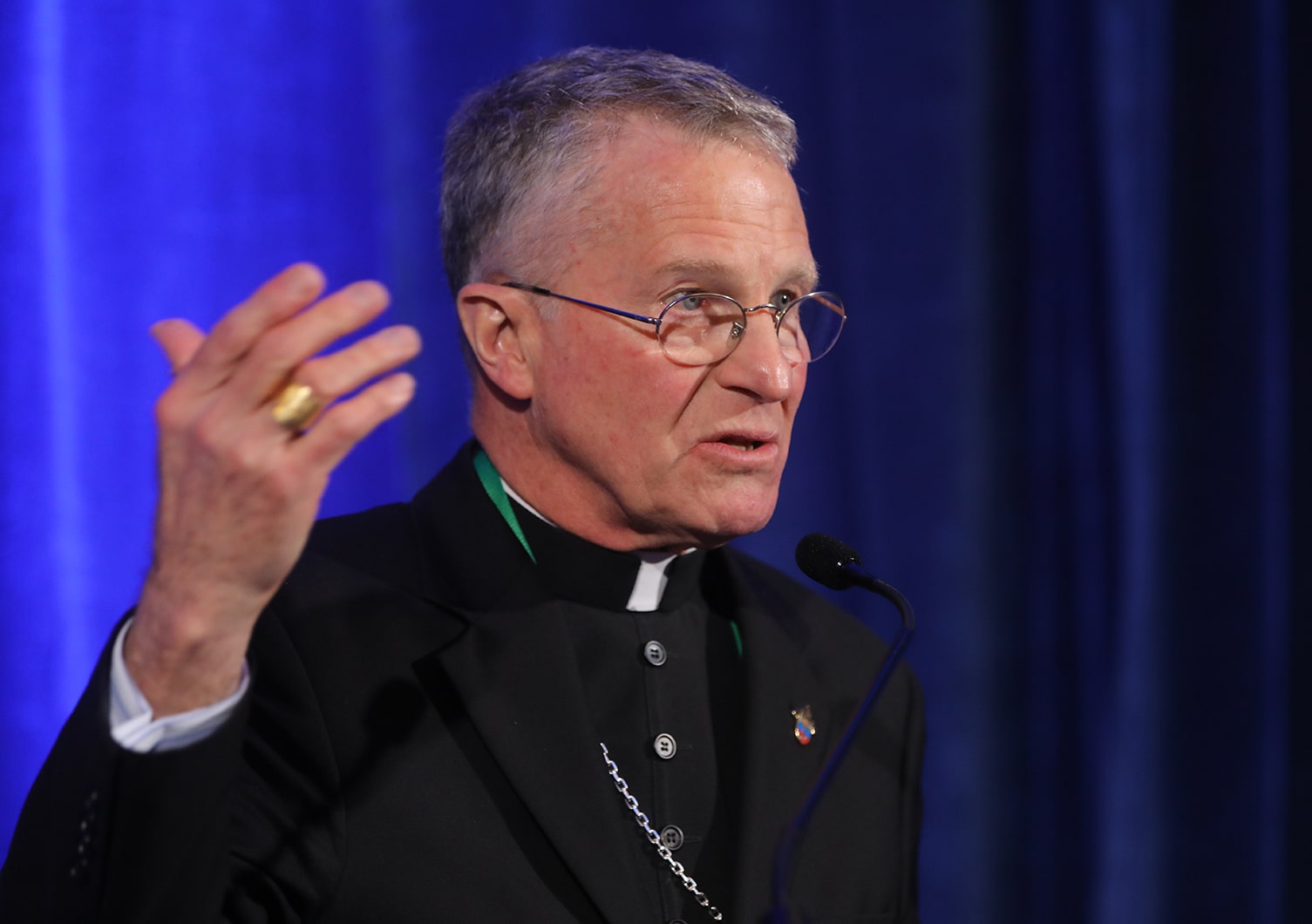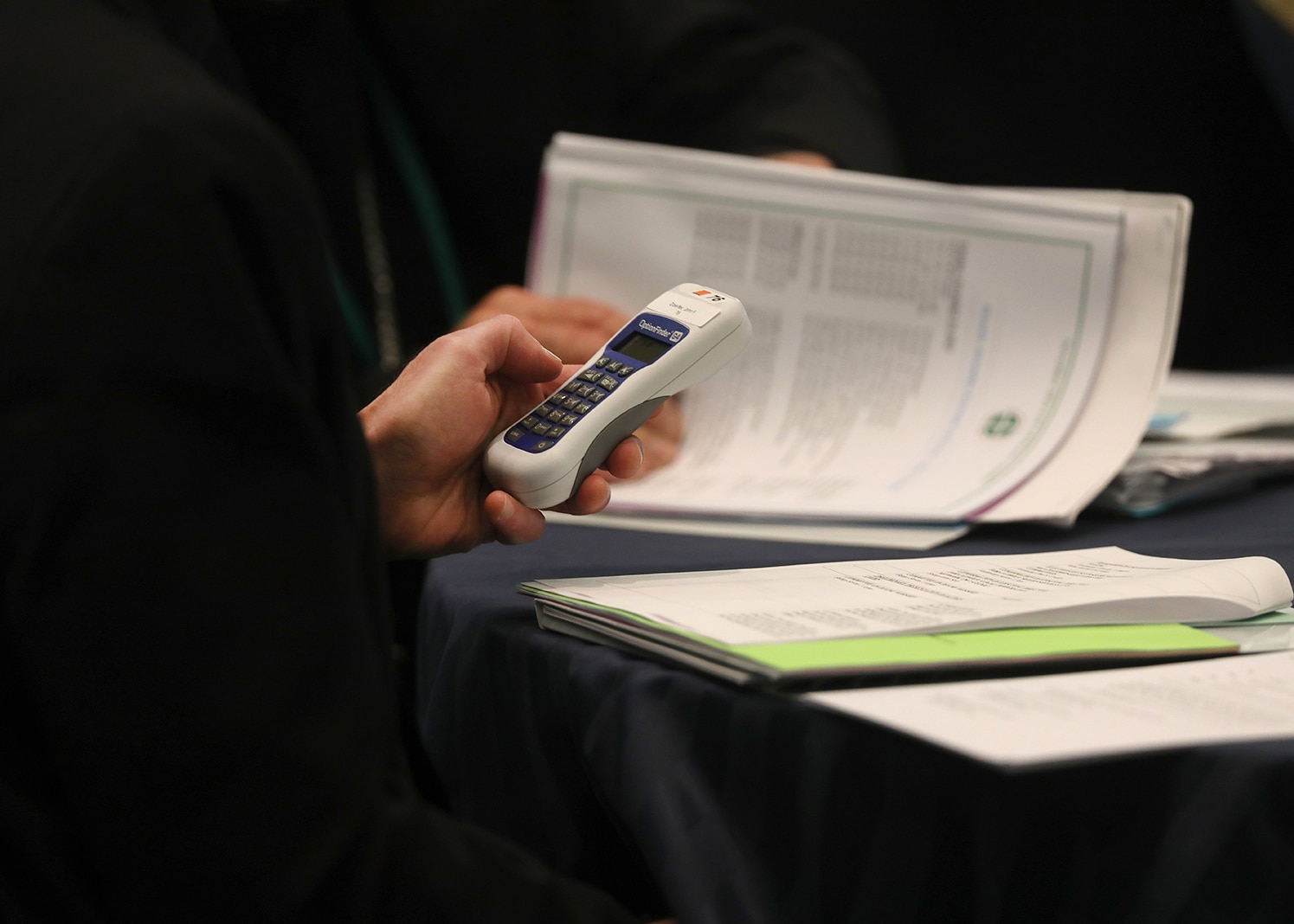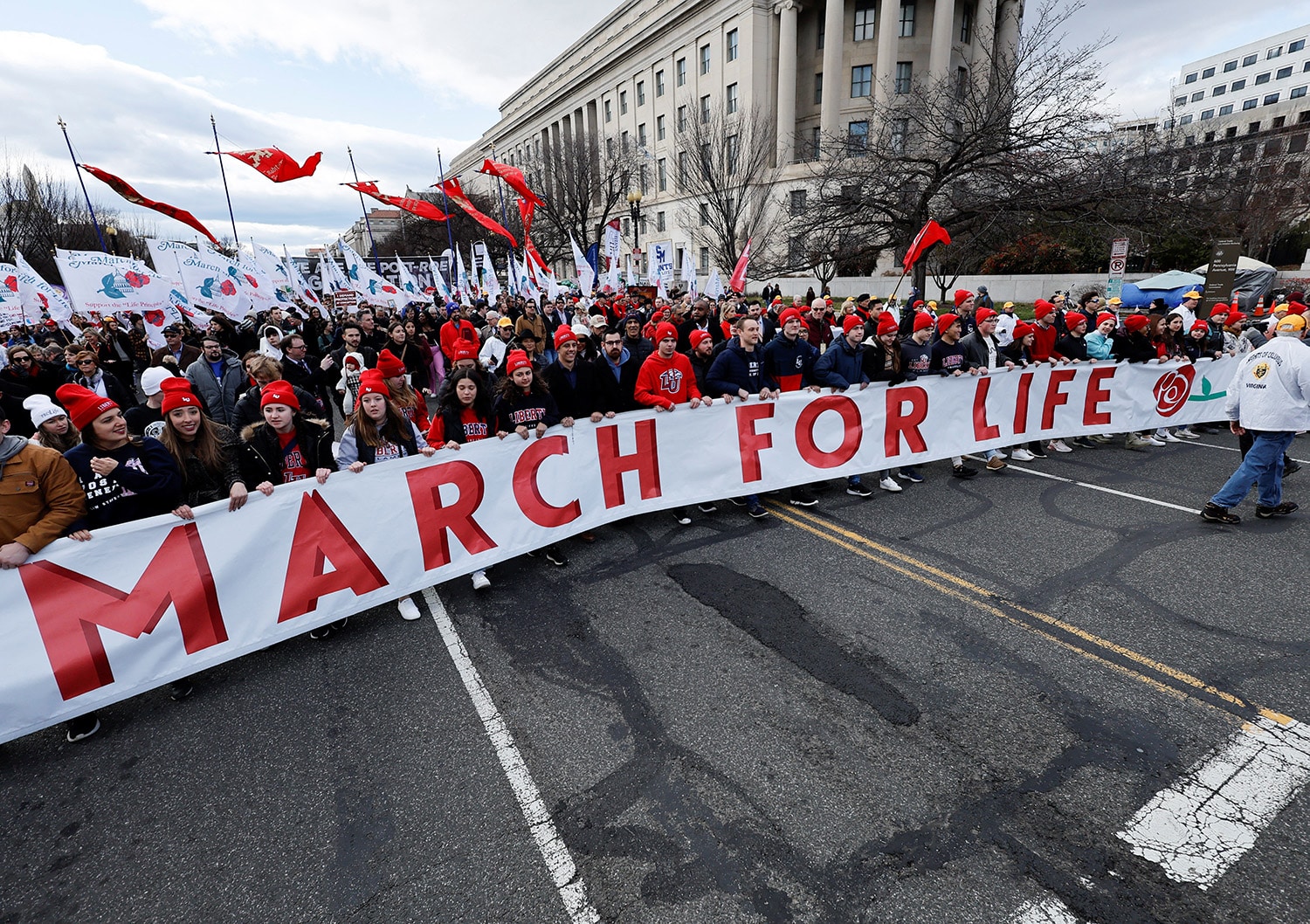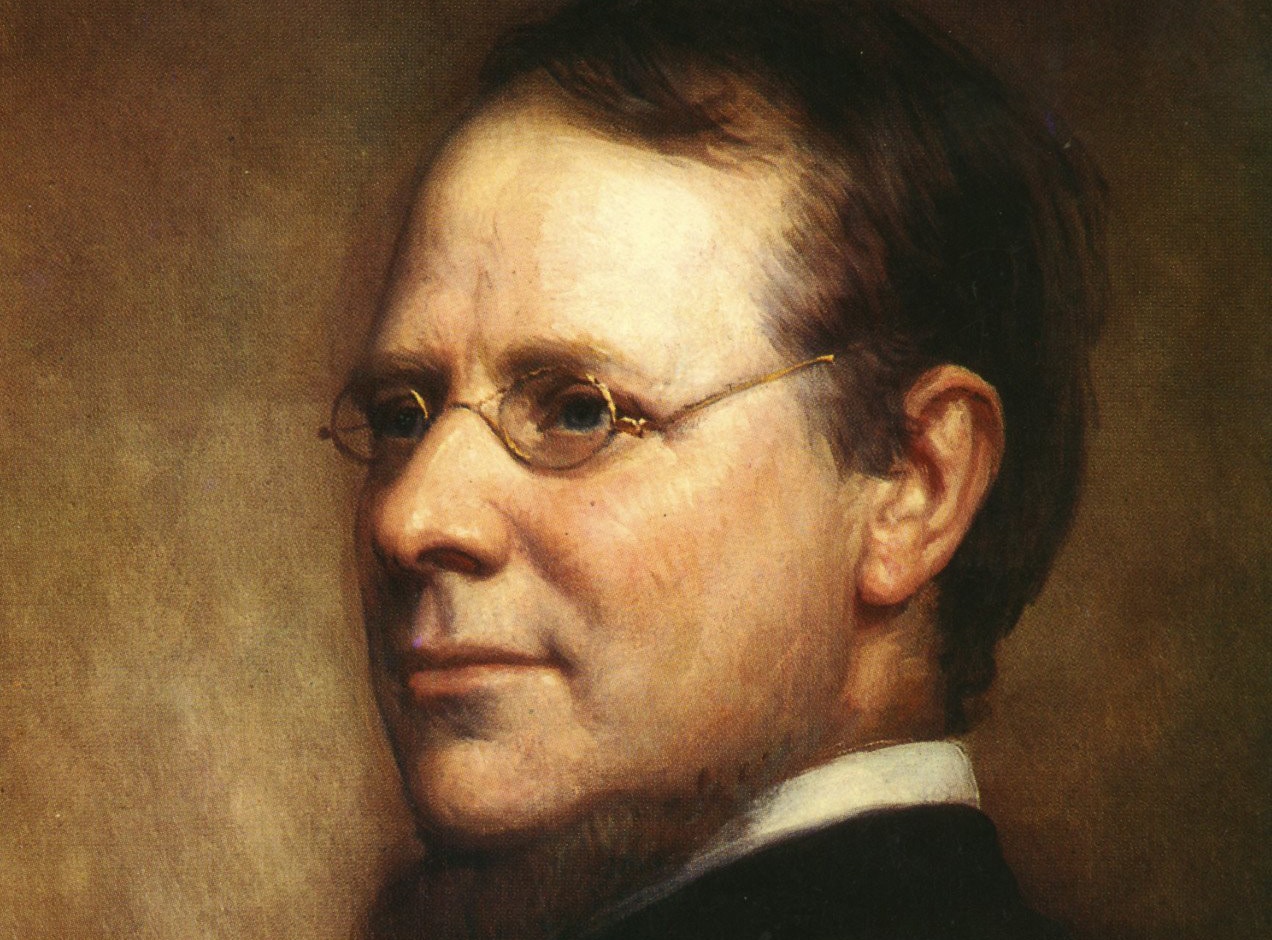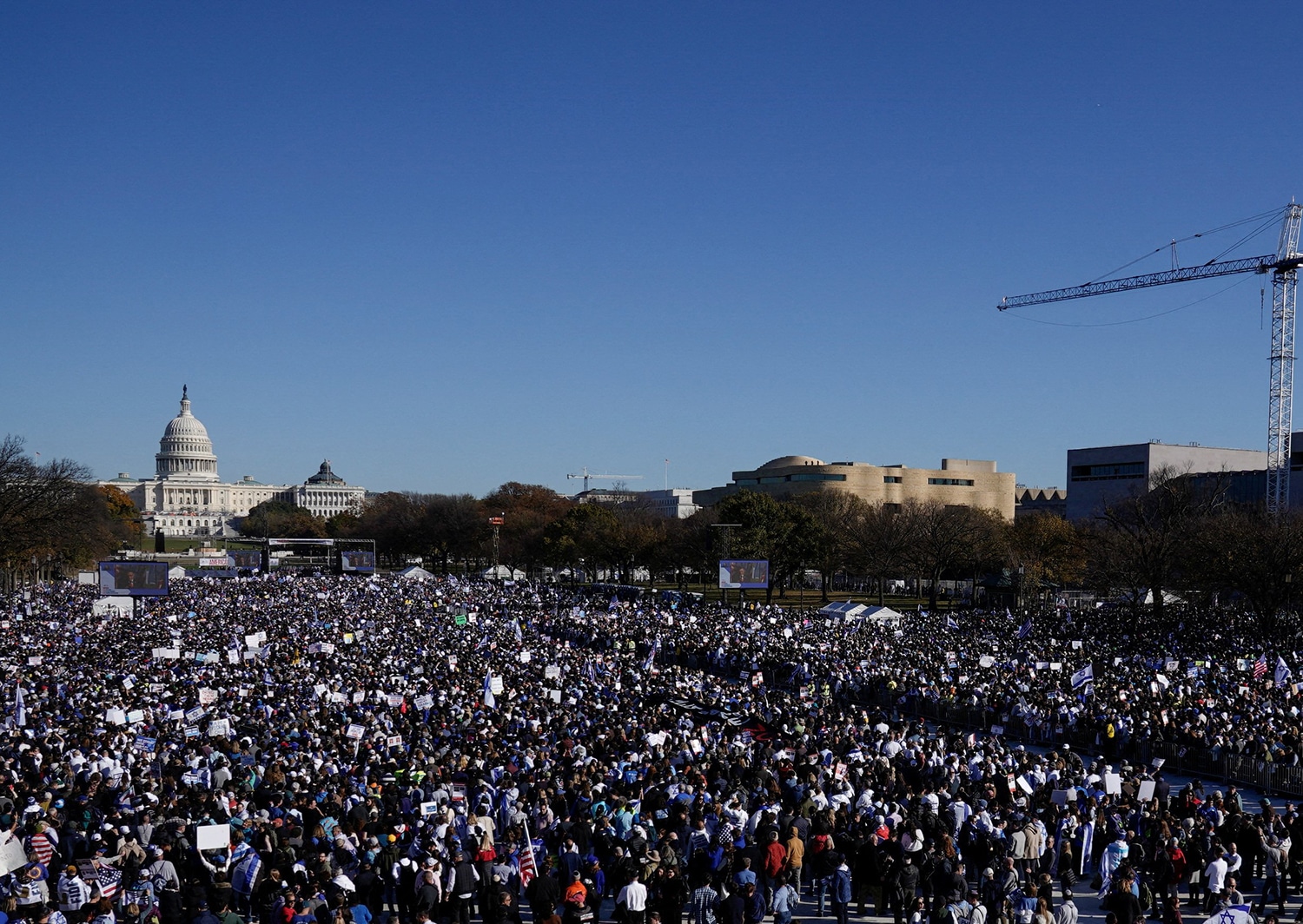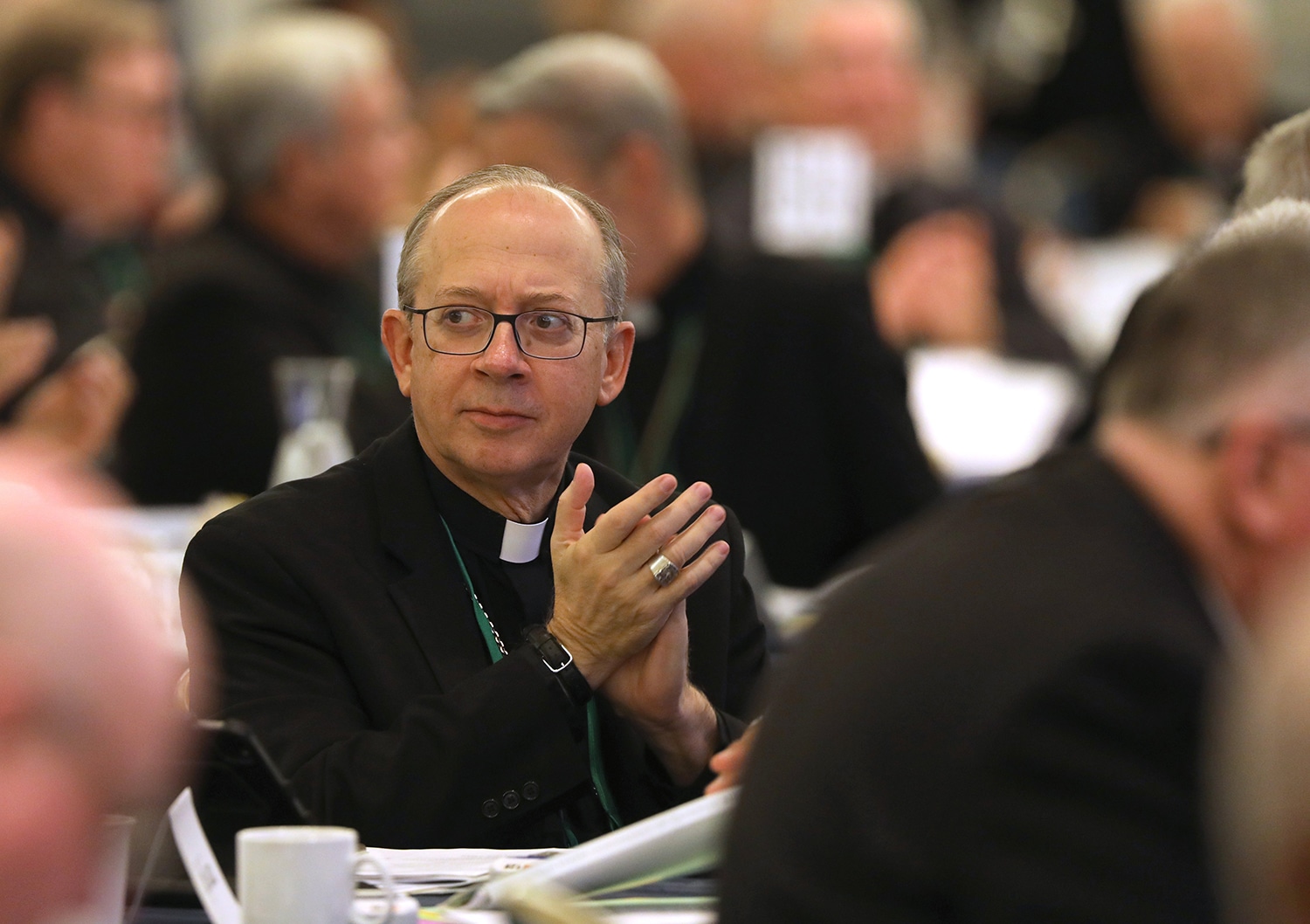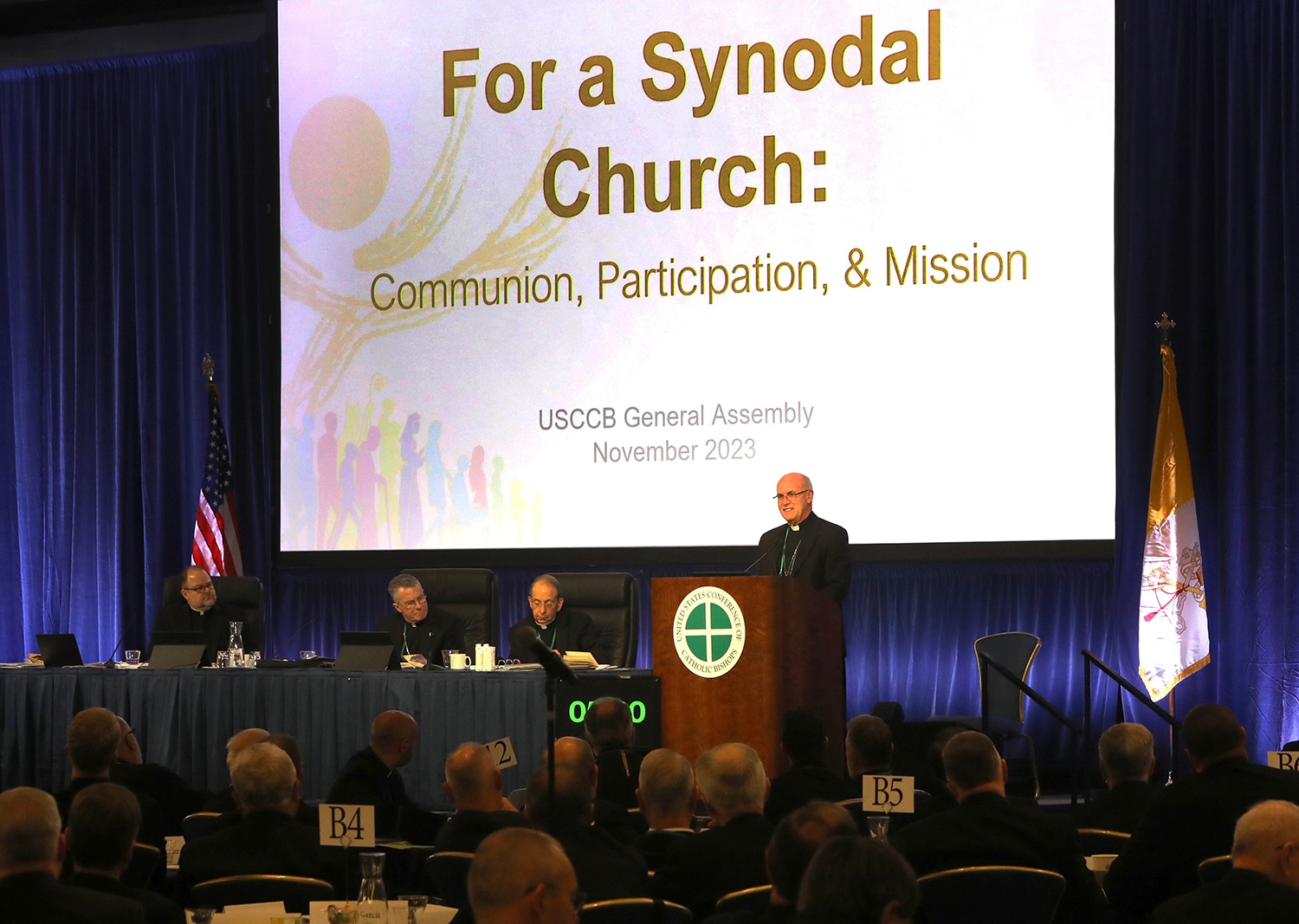BALTIMORE (OSV News) — The president of the U.S. Conference of Catholic Bishops Nov. 14 urged his brother bishops and all the Catholic faithful to “continue to pray” when “peace seems so far away” in today’s world.
“Our thoughts readily turn to the Holy Land, sacred to all three monotheistic religions,” Archbishop Timothy P. Broglio of the U.S. Archdiocese of the Military Services said in his presidential address.
“We recognize and defend the right of Israel to exist and to enjoy a place among the nations. At the same time, we know that the Palestinians, who represent the majority of Christians in the Holy Land while still being a minority themselves, have a right to a land that is their own,” he said. “The Holy See has long advocated for that right and we also plead for them.”
Making disciples of all nations
Archbishop Broglio noted that organizations such as the Knights and Ladies of the Holy Sepulchre and the Catholic Near East Welfare Association “make concrete our commitment to those who suffer and involve Catholics in our nation in a personal way in the suffering of the Holy Land and among her neighbors.”
Those neighbors include Syria, which he said has been almost “forgotten in the deliberations of the powerful,” and Lebanon, which has long shouldered the burden of millions of refugees, he noted. The archbishop also highlighted the struggle of “our Ukrainian sisters and brothers” against “unjust aggression,” the oppression against the Church in Nicaragua and the imprisonment of Bishop Rolando Álvarez there, the “delicate nature” of the Catholic Church’s situation in Myanmar and the ongoing crisis in Haiti.
“Unfortunately, it would be easy to continue with a list of areas of conflict in our world,” he said.
“Certainly, we pray that the Prince of Peace might enlighten those who determine the fate of nations,” he said. Archbishop Broglio reminded the bishops how they prayed for peace at their opening Mass Nov. 13, “and I know that we are ready to advocate for lasting peace.”
He praised the USCCB’s Committee on International Justice and Peace for working “tirelessly … to keep the bishops abreast of the developments in these situations and to encourage, within the limits of what is possible, avenues of dialogue and assistance.”
“As successors of the apostles, we participate in the mandate that Christ gave at the Ascension: ‘Go therefore and make disciples of all nations, baptizing them in the name of the Father and of the Son and of the Holy Spirit, teaching them to observe all that I have commanded you,'” he said. “It continues to be a daunting task.”
Synod on Synodality
The archbishop also talked about his time as a delegate to the first session of the Synod on Synodality Oct. 4-29 at the Vatican; the synod’s second session will be next October.
“Different cultures and different perceptions always enrich,” he said. “It is … important to listen to each other. Personally, I saw many old friends and met new ones. I was also painfully reminded of the needs of so many younger churches.”
He also noted that he sees collegiality and “many synodal realities” that exist now in the U.S. Church through the deliberations of the USCCB’s various committees and how their members interact for the sake of the wider Church and in the work of presbyteral and pastoral councils.
“That is not to say that we do not have to grow and open ourselves to new possibilities, but we recognize and build on what is already present,” he said. “We open our hearts to the action of the Holy Spirit and we listen to that voice.”
He spoke of the National Eucharistic Revival and the U.S. Church’s effort “to call our daughters and sons home to the fullness of life in Christ in the sacraments,” and praised other initiatives with this as their goal, including the Fellowship of Catholic University Students, NET Ministries, Cursillo and so many others.
“On behalf of all the bishops, I thank those who strive to instill vibrancy, commitment and renewal into our faith communities while reaching out to the peripheries at the same time,” he said.
On the front lines
“On the front lines of these efforts are our committed priests on fire with the Gospel,” he said. “They are our first collaborators and we are so dependent on their tireless efforts.” The archbishop said he is encouraged by “young men preparing in the seminaries” for the priesthood, calling them “a sign of hope for the future.”
“We are unified in our commitment to Jesus Christ and his Gospel,” he told his brother bishops. “We may approach the mission in different ways, but we are convinced that our mandate is to bring everyone to an experience of Jesus Christ who leaves no one indifferent or the same.”
He said he hoped the bishops’ plenary assembly, with its full agenda and opportunities “for fraternal exchanges,” would “enrich each of us and send us home with renewed zeal for the mission we have in common.”
The USCCB president encouraged them to return “emboldened” by the zeal of St. Frances Xavier Cabrini, the first U.S. canonized saint known for her care of the poor, marginalized populations and immigrants, who “never really let anything stop her.” Archbishop Broglio concluded his address with a reference to the Book of Revelation, “Whoever has ears ought to hear what the Spirit says to the churches.”

